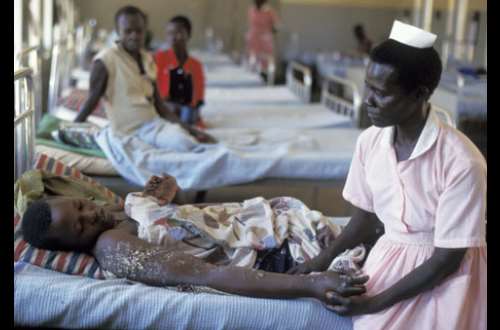This is the result of a study conducted by the Cameroonian Association for Social Marketing, as part of the “HIV self-testing Africa Initiative” project, and made public last Wednesday, August 31, 2022 in Yaoundé.
For the first time since its creation by the World Health Organization (WHO) in 2016, the saliva self-testing strategy has been implemented in Cameroon as part of the “HIV self-testing Africa Initiative” project which ran for 22 months, between April 2020 and June 2022. , by the Cameroonian Association for Social Marketing (ACMS), thanks to a catalyst fund from Unitaid, a global health agency that works to find innovative solutions to treat diseases faster, more efficiently and at lower cost in low- and middle-income countries.
The final report of this project was presented on Wednesday August 31, 2022 in the city of Soa, Center region, and it appears that a total of 531 people tested positive thanks to this self-testing strategy advocated by the WHO, or 4.4%, dependent on the number of reagent kits returned by the subjects. This result was obtained at the end of distribution operations of HIV self-test kits during the period under review, in companies, health facilities, as well as within communities in three regions: the Center, the Littoral and South. To this end, 63,842 saliva self-test kits were distributed, including 10,548 in companies, 14,444 in communities, and 15,878 in health facilities, for a utilization rate of 99.4%.
Indeed, the objective of this pilot project is to support Cameroon through the National Committee for the Fight against HIV/AIDS (CNLS), in the context of the launch and implementation of the self-test. Concretely, this meant: creating an enabling environment for the introduction and mainstreaming of HIV self-testing; establish service delivery models that increase the potential for uptake of HIV self-testing and linkages to care, treatment and prevention services; dissemination of best practices for implementing HIV self-tests.
The particularity of saliva self-screening is that it is done in complete privacy by the subject who requests it, unlike conventional screening which is done in a health facility by health personnel, informed in advance of the test result. “The self-test complements the traditional screening that already exists, by telling oneself, those who do not come to the hospital, those who are difficult to reach, how to reach them with the self-test, so that they can be screened in their intimacy, and share their results if they want to,” says ACMS Executive Director Diarra Kamara. It is now up to the government to take ownership of it, to make it an alternative solution to the traditional screening test.
The implementation of the “HIV self testing Africa Initiative” project by ACMS cost 824.3 million FCFA, or 88% of the total budget allocated to this program, i.e. 936.9 million FCFA.
For the record, the HIV/AIDS prevalence rate in Cameroon fell from 5.6% in 2004 to 2.7% in 2020 among people aged 15 to 49, according to estimates from Spectrum 2021, relayed by the ‘ACMS.

